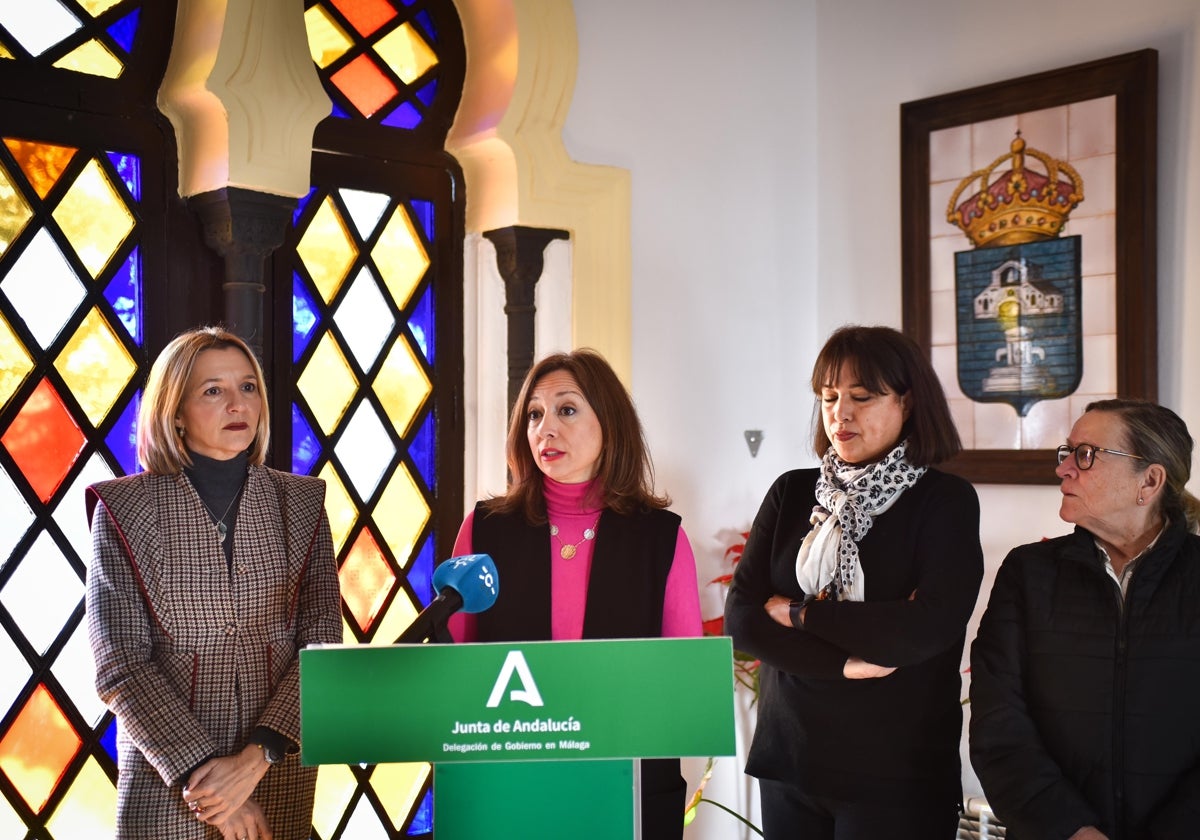Junta confirms tax breaks for 59 municipalities in Malaga with fewer than 3,000 residents
People living in small towns and villages to benefit from this scheme will be able to access a benefit of up to 400 euros per child born or adopted as well as aid with housebuying
The risk of depopulation in Spain's small municipalities continues to be a major problem, and the province of Malaga is no exception. The Junta de Andalucía's delegate for Malaga, Patricia Navarro, took advantage of her visit to the municipality of Carratraca to reaffirm the Junta's commitment to measures aimed at curbing this situation, especially in inland towns and villages. Navarro commented that some of the solutions envisaged include "tax incentives, support for housing and aid to local authorities, with the aim of ensuring that the residents of these places have the same opportunities as in the more populated areas of the province."
During her visit Navarro met with Carratraca's mayor, Marian Fernández, and some of the local government team to address the main challenges for the future of the municipality. At this meeting the delegate conveyed a message of institutional support: "We are aware of the difficulties that these small municipalities in our province are going through and that is why the Junta de Andalucía is concerned and working hard on maintaining the population in situ, helping them to progress and generate wealth."
Navarro confirmed that this year the Junta will apply a series of tax benefits to residents of 59 municipalities in Malaga province with less than 3,000 inhabitants. Among the measures highlighted, these municipalities will be able to access a deduction of 400 euros for each child born or adopted, as well as for each child in foster care.
The municipalities to benefit include localities such as Alcaucín, Alfarnate, Alfarnatejo, Algatocín, Almáchar, Almargen, Alozaina, Alpandeire, Árchez, Ardales, Arenas, Atajate, Benadalid, Benalauría, Benamargosa, Benaoján, Benarrabá, El Borge, El Burgo, Canillas de Aceituno, Canillas de Albaida, Cañete la Real, Carratraca, Cartajima, Casarabonela, Comares, Cuevas Bajas, Cuevas del Becerro, Cútar, Faraján, Fuente de Piedra, Gaucín, Genalguacil, Guaro, Igualeja, Istán, Iznate, Jimera de Líbar, Jubrique, Júzcar, Macharaviaya, Moclinejo, Monda, Montecorto, Montejaque, Parauta, Pujerra, Riogordo, Salares, Sayalonga, Sedella, Serrato, Tolox, Totalán, Valle de Abdalajís, Villanueva de Tapia, Viñuela and Yunquera.
At a regional level a total of 426 villages and towns across Andalucía will be eligible for these incentives, which include discounts of up to 6,750 euros when purchasing a home in these rural areas. "These are effective measures promoted by the Andalusian government that ensure a more prosperous future for municipalities affected by depopulation. These initiatives are in addition to the tax deductions that we have been applying in Andalucía since 2019," stated Navarro in her speech.
Sustainable development
The delegate also stressed that these tax incentives not only support families and young people in the purchase of housing, but also promote sustainable development, a key aspect in rural areas. Thus, large families benefit from a deduction in their tax returns ranging from 200 euros in the case of meeting the criteria to be classed as a 'generally large' family (three or more children with one or both parents) to 400 euros in the case of 'especially large' families (five or more children). Moreover, these deductions go hand in hand with the tax deduction for births or adoptions.
Among the most important measures Navarro also highlighted the deduction of 15% of the rental price of the main residence for those under 35 years of age to a maximum limit of 600 euros per annum. The deduction for home purchases has also been increased from 5% to 6% in the case of citizens under 35, the over-65s, the disabled and victims of gender violence or terrorism. She reminded those attending the visit that the Junta had also already reduced the general rate of property transfer tax to 7% back in 2021 for all transfers of real estate.

